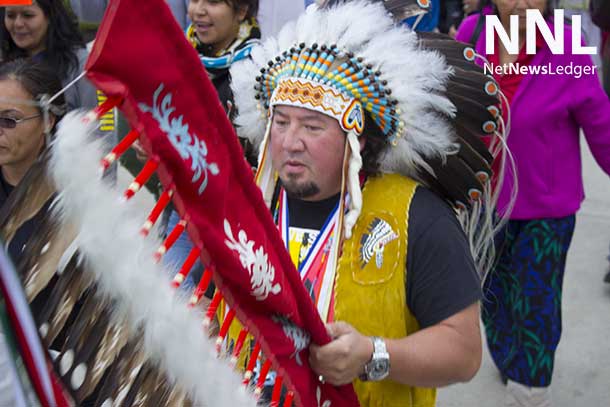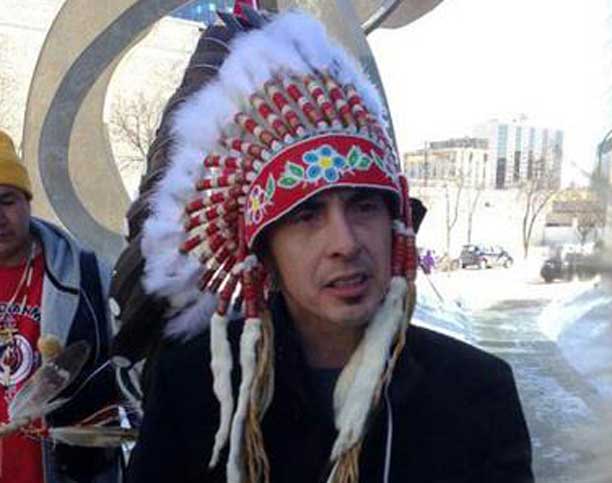“Its been said that it takes a community to raise a child… We’re being denied the opportunity to do that…” -AFN Regional Chief Bill Traverse
WINNIPEG – ANISHINAWBEK – The Assembly of Manitoba Chiefs are working toward protecting children in the province.
Tuesday, The Assembly of Manitoba Chiefs released a report on the Child Welfare system in Manitoba. A system that is coming under serious scrutiny after the failure of the system to protect a young woman who was murdered.
Tina Fontaine was murdered in Winnipeg. The City of Winnipeg Police Chief told media on Thursday, September 25 that officers encountered Tina Fontaine during a traffic stop on August 8. The officers allowed her to go even though she was known to be missing. The professional standards unit has begun an investigation. It has also been reported that paramedics picked up Tina Fontaine by ambulance the same day police claim to have last made contact with her.
Grand Chief Derek Nepinak states, “Our public forums on the CFS system have allowed us to expose the tip of the iceberg. I thank those who participated because it took great strength and faith in one another to step up. Thank you Deanna Ledoux for crossing the invisible jurisdictional boundaries from Saskatchewan to bring messages of hope and empowerment to our communities here in Manitoba. We must continue to lift the veil on our generations genocide. Im not prepared to wait for 50-70 years for another truth and reconciliation commission on the atrocities of the child welfare system experience. There are survivors of CFS now ready to talk…! Together we can dismantle this system and empower our families and communities”.

The AMC report states that “The Assembly of Manitoba Chiefs explored the child welfare system in Manitoba from the
perspective of the people who must deal with the system directly including children (now adults), parents, grandparents, workers, and support service organizations that are established to help the people.
Through a two‐day Open Citizens Forum along with numerous video and written submissions, personal heartfelt and often traumatic stories have been shared. These stories illustrate the devastating impact that the policies and practices of the current child welfare system are having on the First Nations children and families in Manitoba. In witnessing the expression of actual experiences of children and parents and how the system has affected their lives, it can be concluded that the current approach merely deals with the symptoms of the deeper underlying challenges in people’s lives.
The implementation of all recommendations put forth by Justice Hughes in “The Legacy of Phoenix Sinclair: Achieving the Best for All Children” might make slight improvements within current system practice but the fact remains that the legacy of the Manitoba Child Welfare System is an extension of the cultural genocide experienced by the Residential School years and Sixties Scoop.
The real life impacts of the current child welfare system informs us that a lot of resources are being put into a failing system. Based on the outcomes that are a result of being involved in the child welfare system, it can be concluded that system practices must change immediately. Further to this, there are critical system additions required including, family
support, advocacy, and intensive holistic healing opportunities.
System Must Transition to a First Nations System
Overall, there must be a transition to a First Nations System that is based on the original systems of child rearing, education, and nurturance of individual spirit. Resources must be used in appropriate ways to break the existing cycle to restore spiritual, physical, mental, and emotional health and well‐being. The only way out of the current child welfare crisis is to develop a completely new system based on the First Nations principles of: love, compassion, respect, and dignity. With the guidance of the First Nations Elders and Grandmothers, clear direction on how to do this will come from a higher power of Spirit. In order for this new path to be successful, it will
be imperative for First Nations to never compromise the long‐term goals of “Bringing Our Children Home”.










